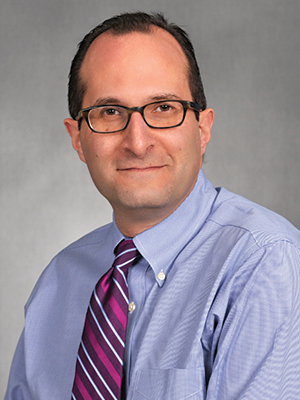Since finishing chemotherapy, I have trouble remembering, focusing and multitasking. How can I improve my cognitive function?

Fremonta L. Meyer Staff Psychiatrist at Dana-Farber Cancer Institute and Assistant Professor of Psychiatry at Harvard Medical School in Boston. Photo courtesy of Fremonta L. Meyer
FREMONTA L. MEYER: You’re not alone in this experience. One study showed that 58 percent of patients experienced impairment of memory and concentration six months after chemotherapy, radiation or both. In April, the National Comprehensive Cancer Network added recommendations for coping with “chemo brain” to its Cancer Survivorship Guidelines.
Chemo brain symptoms vary, but generally include short-term memory loss and difficulty concentrating, finding the right words and multitasking. Many people experience mild to moderate symptoms that gradually resolve on their own within six to nine months after treatment ends. Medications, fatigue, insomnia, anxiety, depression and alcohol use also can affect cognitive function, so review any of these possibilities with your doctor. The following strategies can help alleviate some of your symptoms.
Cues often help people with chemo brain remember what they’ve forgotten, so enhance your organizational skills. For example, you might want to set smartphone alarms to help you remember appointments and keep all to-do lists and calendars in one notebook. A few sessions of cognitive rehabilitation therapy, which often is covered under health insurance occupational therapy benefits, might help you determine which strategies are most useful.
Some studies have shown that neurofeedback and computer-based brain fitness programs, such as the Posit Science module and Lumosity, can help improve cognitive impairment in survivors. Practicing mindfulness also can help with memory and concentration by requiring you to focus on the present, which increases your chances of retaining information.
If your symptoms don’t improve after nine months, talk to your doctor to see if another condition, such as a thyroid problem, might be causing your symptoms. Once your doctor has ruled out other possible causes, he or she may consider prescribing a psychostimulant, which can improve fatigue, attention and concentration.
Be patient. Becoming frustrated or anxious when chemo brain symptoms occur could further disrupt your attention and mental functions. Being compassionate to yourself can help you achieve a more balanced mental state.
SURVIVING WITH CHEMO BRAIN // The National Comprehensive Cancer Network offers information about chemo brain in its survivorship guidelines. // CancerCare provides tips for keeping your memory sharp. // Cancer and Careers shares how to deal with chemo brain at work.
I was recently diagnosed with cancer and will soon begin chemotherapy. How do I develop a safe fitness routine?

Laura Rosencrantz American College of Sports Medicine Certified Health Fitness Specialist, Founder of Inpower and Certified Cancer Exercise Specialist in Portland, Oregon. Photo by Lavenda Memory
LAURA ROSENCRANTZ: Studies have shown that patients who stay active during and after treatment may reap immediate and long-term benefits. Exercising while undergoing cancer treatment can mitigate your side effects, help you recover more quickly, lower your risk of a cancer recurrence and improve your chances of overall survival. Exercising may help you maintain a healthy weight, mobility, strength and endurance. Being active also may lessen cancer-related fatigue and decrease anxiety, insomnia and depression.
Before starting an exercise routine, consult with your oncologist. Your plan must be tailored to your personal and medical needs. You may want to find a free program, such as Livestrong at the YMCA, or hire a personal trainer who is certified to work with cancer patients and survivors. A trainer can assess your fitness level and medical history; factor in your cancer diagnosis, treatment and side effects; create a plan that meets your needs; and work with you throughout treatment.
Aim for 20 to 30 minutes of low- to moderate-intensity aerobic exercise five to seven days a week. Low- to moderate-intensity activities, such as walking, gardening or dancing, will raise your heart rate, but you should still be able to talk without becoming winded.
When choosing activities, consider your symptoms and treatment side effects. For example, if you have poor balance due to neuropathy or muscle weakness, you could help avoid a fall by using a recumbent stepper or stationary bike, rather than walking outside or on a treadmill.
Also try to incorporate two to three nonconsecutive days of strength training that targets major muscle groups in your legs, chest and back to counteract muscle loss. Using light weights, resistance bands or your own body weight, strive to complete six to eight exercises of 12 to 15 repetitions each day.
If you were active before your cancer diagnosis, you may continue doing the activities you enjoy, but you might have to modify the exercise by decreasing your intensity and duration. If you were sedentary before your diagnosis, start with five- to 10-minute intervals of exercise, such as walking, two to three times throughout the day. As your body adjusts, slowly increase the duration until you can walk for 20 to 45 minutes uninterrupted. Always listen to your body and don’t overexert yourself.
STAYING ACTIVE DURING TREATMENT // Memorial Sloan Kettering Cancer Center shares how exercise could benefit cancer patients. // The Mayo Clinic offers an at-home exercise program for cancer patients. // The U.S. Centers for Disease Control and Prevention provides information on how to calculate your target heart rate.
I’m my husband’s caregiver, and I’m feeling depressed. How do I help myself and provide my husband with the care he needs?

Gregory D. Garber Supervising Social Worker at Sidney Kimmel Cancer Center at Thomas Jefferson University in Philadelphia. Photo courtesy of Gregory D. Garber
GREGORY D. GARBER: For caregivers of cancer patients, emotional distress is normal. The National Comprehensive Cancer Network defines distress as a mix of anxiety and depressive symptoms that may cause sleeplessness, a lack of appetite, trouble concentrating, and difficulty completing everyday activities. Like cancer patients, many caregivers experience distress around the time their loved one is diagnosed, before scans or after a recurrence. During stressful moments, give yourself time to adjust, formulate a plan and create a new normal. Most cancer-related distress abates over time.
Caregivers of cancer patients spend an average of eight hours a day caring for their loved ones. Because the role is often new, many caregivers are consumed by it, sometimes giving up other activities they enjoy. That imbalance can cause the caregiver to experience long-term distress, which can lead to clinical depression. If your symptoms last for more than two weeks, you feel down most days, and you no longer enjoy things you once did, you may be depressed and should see your doctor, who might refer you to a professional who can help. Antidepressants might be an option.
If you’re experiencing high levels of anxiety, learn as much as possible about what your loved one may experience, such as side effects from medication, and identify his needs. A lack of information often heightens anxiety because people fear the worst-case scenario.
While many caregivers experience the same emotions as cancer patients, they often don’t receive the same support. Acknowledge your emotions. Attend a support group for caregivers or talk to a social worker. Allow family and friends to help you by cooking or cleaning or by transporting your loved one. And make time for yourself.
TAKING CARE OF YOURSELF // Cancer Support Community details a caregiver’s journey. // American Cancer Society offers a caregiver distress checklist. // Help for Cancer Caregivers provides an overview of caregiver depression and how to get help.
Cancer Today magazine is free to cancer patients, survivors and caregivers who live in the U.S. Subscribe here to receive four issues per year.




